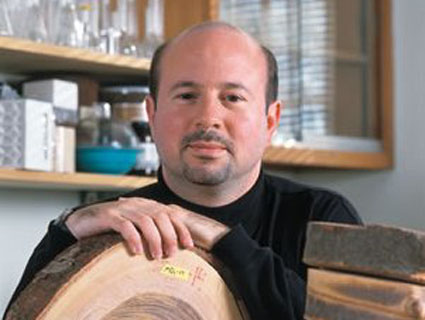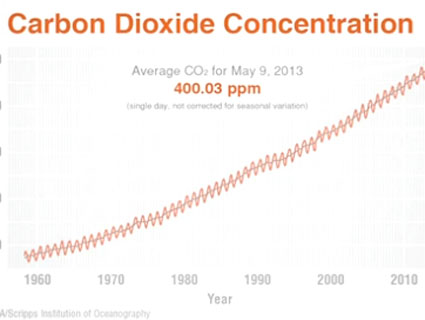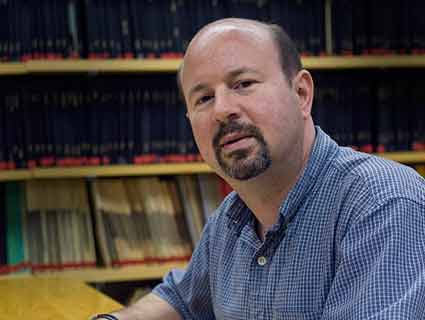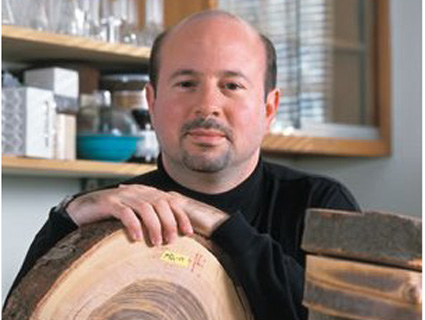
<a href="http://www.meteo.psu.edu/holocene/public_html/Mann/index.php">Pennsylvania State University</a>
A judge in the Superior Court of the District of Columbia is allowing a defamation suit that climate scientist Michael Mann filed against conservative commentators to move forward.
Last year, Mann sued the National Review and the Competitive Enterprise Institute over blog posts accusing him of lying about climate science. The NRO post called his research “fraudulent,” and the CEI post accused him of “scientific misconduct.” NRO also twice quoted another blogger who referred to Mann as “the Jerry Sandusky of climate science,” comparing him to the Pennsylvania State University football coach convicted of child molestation last year.
Blue Marble readers have certainly heard Mann’s story before. The Penn State climate scientist has been the subject of a relentless assault from climate skeptics over the years, largely tracing back to a chart of global temperature records that he coauthored that showed a sharp uptick in the industrial era.
The judge issued two decisions on July 19 allowing Mann’s suits to go forward. The plaintiffs had each filed a motion to dismiss, arguing that the First Amendment protects their right to say that sort of stuff online. But the judge didn’t agree. Here’s a key part of the decision on the CEI suit (via Climate Science Watch) in which the judge asserts that the blogger was not just stating opinions, but that he was making factual claims about Mann’s work that could be proven false:
Defendants argue that the accusation that Plaintiff’s work is fraudulent may not necessarily be taken as based in fact because the writers for the publication are tasked with and posed to view work critically and interpose (brutally) honest commentary. In this case, however, the evidence before the Court, at this stage, demonstrates something more and different than honest or even brutally honest commentary.
The judge continued:
Plaintiff has been investigated several times and his work has been found to be accurate. In fact, some of these investigations have been due to the accusations made by the CEI Defendants. It follows that if anyone should be aware of the accuracy (or findings that the work of Plaintiff is sound), it would be the CEI Defendants. Thus, it is fair to say that the CEI Defendants continue to criticize Plaintiff due to a reckless disregard for truth. Criticism of Plaintiff’s work may be fair and he and his work may be put to the test. Where, however the CEI Defendants consistently claim that Plaintiff’s work is inaccurate (despite being proven as accurate) then there is a strong probability that the CEI Defendants disregarded the falsity of their statements and did so with reckless disregard.
The full National Review ruling is here and the CEI ruling here. The parties are scheduled to be back in court on September 27.








